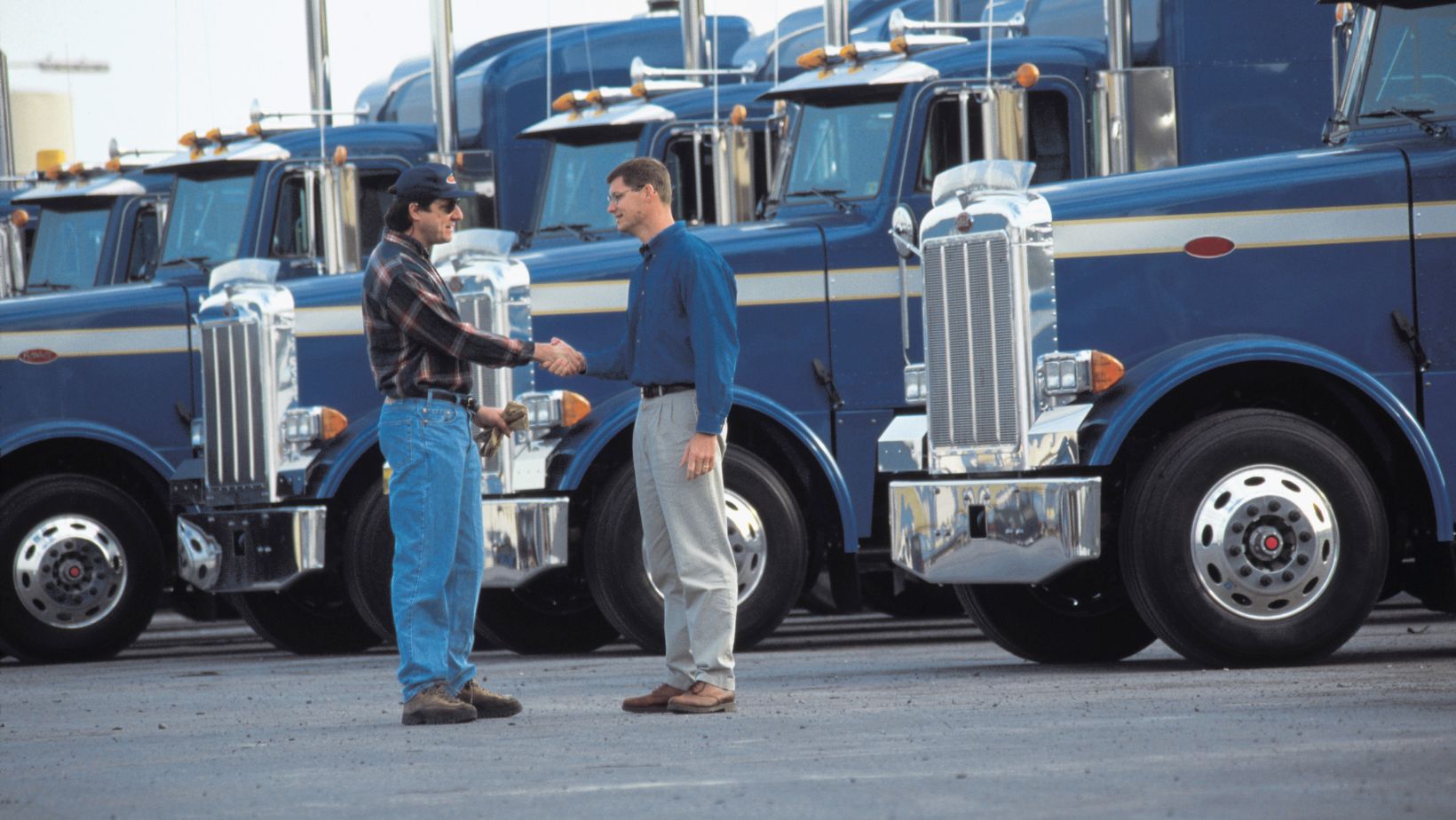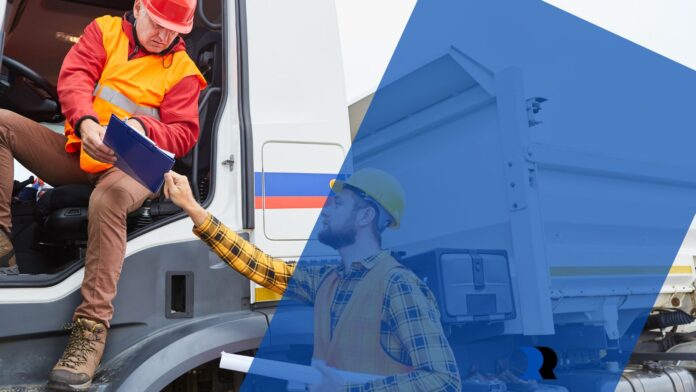Being an independent contractor versus an employee can greatly complicate legal matters after a truck accident. This in-depth blog post explains key differences and their implications for liability and victim compensation.
Defining the Independent Contractor vs Employee Relationship
Truck drivers haul freight either as independent contractors or employees. The legal designation carries significant distinctions.
Independent Contractors
Independent contractor truckers are essentially self-employed business owners contracted by a trucking company to transport loads. As small business operators, they have autonomy in managing their workload:
- Free to choose routes and set driving schedules
- Own or lease their own trucks
- Cover vehicle costs/expenses
- Not managed or supervised by a trucking company
Payment is per job instead of a steady paycheck. Contractors must track miles driven and delivery records for invoice payment.
Benefits: Independence and ability to make more money via long hours than a standard employee salary.
Downsides: No stability or guaranteed wages. Must pay for own truck costs, fuel, repairs, and other expenses.
Employees
Truck drivers are designated as employees and are directly hired by a trucking company. As staff drivers, and they:
- Drive trucks owned and maintained by their employer
- Log miles for set wages and benefits
- Follow routes and schedules set by the trucking company
- Work under the supervision of trucking company management
Benefits: Stability of a regular paycheck with benefits like health insurance. No business ownership costs.
Tradeoffs: Capped earning potential from fixed salaries. Less flexibility and independence.
Why the Legal Designation Matters for Liability
When a truck accident occurs involving driver negligence, the trucker’s status as an independent contractor or formal employee is highly relevant in determining legal liability.
Liability in Accident Cases
Liability refers to legal responsibility for any damages, injuries, or fatalities resulting from a truck crash. Lawsuits brought by injured victims or surviving families aim to prove liability against parties like:
- The truck driver
- The trucking company that hired the driver
- Other motorists involved in the crash
Liability is determined by the court. Multiple parties may share liability depending on causal roles.
More liable parties means more resources to pay out substantial compensation for injuries and losses to victims and families harmed by the truck accident.
Role of Trucking Company Control
The trucking company’s level of control over the driver also plays a key role.
Employee status implies the trucking company:
- Sets schedules
- Assigns routes
- Oversees truck maintenance
- Manages and disciplines drivers
This control establishes their vicarious responsibility under respondeat superior laws for driver negligence.
Independent contractors have autonomy with less trucking company oversight. This makes holding the company liable more difficult.
Liability Differences Based on Contractor vs Employee Status
Due to the distinctions in oversight, independent contractor status tends to limit trucking company liability exposure.
Independent Contractor Liability Scenario
Under this model, the independent contractor driver shoulders legal and financial liability after causing an accident.

For a crash victim to recover damages from the trucking company that hired the contractor, additional proof is required. Plaintiffs must show:
- The company exercised control over the contractor’s actions that directly led to the accident, such as mandating unsafe loads, routes, schedules, etc.
OR
- The contractor presented himself to the public as a driver for the company. For example, wearing company uniforms, driving trucks with the company logo, etc.
Essentially, the trucking company must have played an active, causal role in the negligence or presented an image that the contractor was an employee despite legal distinctions.
If neither is proven, the independent contractor lacks grounds to hold the trucking company liable. The contractor and their insurance remain the only source of financial accountability.
While it is still true that an experienced attorney can help you get compensation for your injuries even in such a circumstance, this is a high bar that often insulates trucking companies from liability for independent contractor accidents.
Employee Driver Liability
For truck drivers classified as employees, legal options to hold their trucking company liable are much broader under vicarious responsibility laws regarding employers.
The basic premise is that the trucking company:
- Hires, trains, and directs the driver’s work
- Owns/maintains the operation vehicles
- Sets policies, procedures, schedules, etc.
So the company shares liability for actions taken within the scope of employment. Both entities can be named as defendants.
Given the oversight relationship, trucking companies more readily share liability for employee driver negligence.
Impact on Financial Recovery for Accident Victims
The liability differences between independent contractors and employees significantly impact victims’ options for financial recovery after a truck crash.
Independent Contractors – Limited Resources
Because independent contractors are sole proprietors with their own limited insurance policies, crash victims have fewer sources for damages compensation if the trucking company evades shared liability.
Unfortunately, even extensive truck accident injuries and vehicle damage can exceed a single contractor’s available insurance coverage. This leaves victims gravely undercompensated.
Employees – Company Insurance
For truck drivers classified as employees, the trucking company’s insurance and resources supplement individual coverage. This gives victims another avenue for recovering accident costs.
Large trucking companies have extensive commercial policies that, combined with the employee’s insurance, can better compensate for crash damages without caps.
Arguments Against the Independent Contractor Model
The liability shield that often protects trucking companies from independent contractor negligence has sparked debate about this staffing model.
Prioritizes Profits Over Safety
Some argue it incentivizes trucking companies to cut corners on driver oversight and training to maximize revenue – decreasing public safety in the process.
With limited liability for contractor mistakes, critics assert companies pay less attention to ensuring rigorous hiring standards, vehicle maintenance requirements, adequate rest regulations, etc.
Lowering these bars increases risks but has no financial consequences for the companies.
Limited Accountability
Additionally, companies can’t control factors like:
- Total contractor hours driven
- Drug and alcohol policies
- Truck inspection and repairs
- Medical certification
This lack of oversight makes the likelihood of an overtired, intoxicated, unhealthy, or negligent driver getting behind the wheel – and causing a crash – much higher.
Yet companies remain protected from liability when independent contractors cause collisions.
Some contend this model irresponsibly separates authority from accountability in the name of profits.
Arguments Supporting the Contractor Model
Supporters counter that independent contractors allow for innovations that increase efficiency.
Flexibility – Companies can scale to meet demand without investing in full-time employee capacity. Customized contractor arrangements transport special loads.
Driver Independence – Contractors act as small businesses to advance their economic interests on their own terms.
Industry Expansion – Lower barriers to enter the trucking sector, fulfilling commerce needs.
They say mandatory employee classifications will shrink opportunities and income potential.
Tests for Classifying Employee vs Contractor Status
Given the liability and compensation implications, driver classification as an independent contractor or formal employee often becomes a point of legal contention after truck crashes.
Motivations for Misclassification
- Trucking companies avoiding liability
- Drivers wanting independence without tax/insurance obligations
Courts determine status based on:
The Economic Realities Test
This multi-factor assessment examines the financial dynamics between drivers and trucking companies:
- Control – Company power over driver activities and truck operation details
- Opportunity for Profit/Loss – Driver ability to earn more or take financial risks
- Investment – Driver ownership stake in equipment/materials
- Permanence – Length and regularity of working relationship
- Skill Level – Specialized abilities or training required
The more control and company investment combined with less driver profit potential and autonomy, the more the relationship fits employment standards.
After weighing the factors, the court designates the driver as either an independent contractor or a legal employee of the trucking company.
This determination guides liability rulings and victim compensation eligibility.
Steps in Filing a Truck Accident Lawsuit
Truck accident cases involving independent contractor drivers follow typical procedural steps:
Accident Investigation
Plaintiff attorneys investigate to determine:
- Cause of accident
- Factors like speeding, intoxication, negligence
- Police and expert analysis
This evidence identifies liable parties.
Name Potential Defendants
Based on investigation findings, the formal complaint names liable individuals and companies, such as:
- Trucking company
- Truck driver
- Other motorists involved
The suit alleges how each contributed to accident damages.
File a Complaint and Receive Responses
The plaintiff’s complaint initiates the lawsuit, seeking damages compensation from the defendants.

Named parties must formally respond – either admitting, denying allegations, or asserting legal defenses.
Discovery Phase
Both sides exchange relevant evidence like:
- Police reports
- Company records
- Documentation of damages
- Witness interviews
- Expert testimony
This phase aims to support liability claims against defendants.
Settlement or Trial
Before reaching trial, parties often agree to informal settlement talks. Over 90% of cases settle out of court.
If no out-of-court legal settlement is reached, the case proceeds to a civil trial. A judge or jury determines liability and compensation based on presented evidence.
Key Takeaways
- Truck drivers classified as independent contractors have a business contract instead of an employment relationship with trucking companies.
- Contractor status limits trucking company liability for driver negligence. Accident victims can only claim damages from the individual contractor unless the company exercised control over negligent actions or presented the contractor as an employee.
- Employee status makes trucking companies vulnerable to lawsuits under vicarious liability laws, creating more compensation resources for victims.
- Courts decide classification based on company control, driver investment, and profit potential, length of the working relationship, and skill level.
- Accident lawsuits follow investigation, discovery, and settlement/trial processes to determine liability.
Carefully examining how independent contractor versus employee status impacts accident liability is crucial when considering legal options. As a result, those harmed by a negligent truck driver should consult an attorney to discuss their rights.


